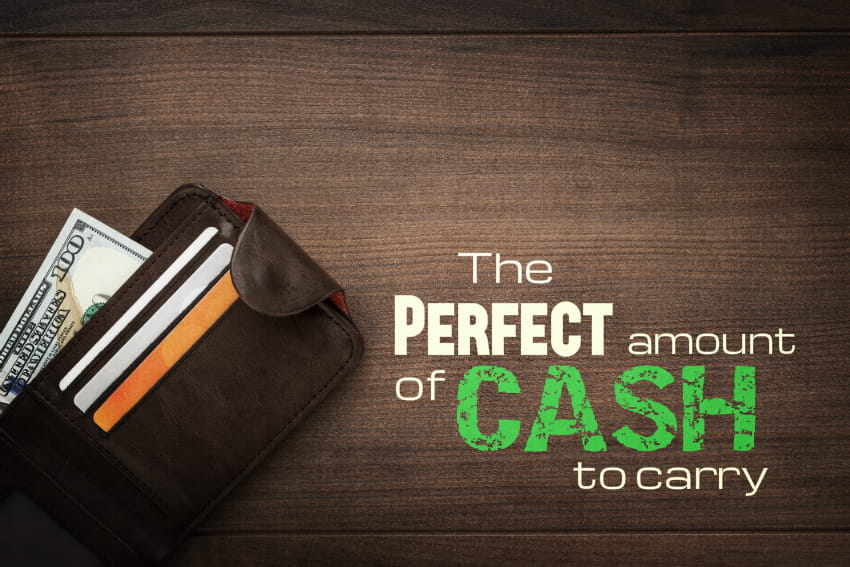How much cash should you carry?

We live in an increasingly digital world. That digitization has made it easier and easier for individuals and businesses to forgo physical currency almost entirely. Where once you wouldn’t have been surprised by a business that didn’t accept credit cards, now even the kids at the end of the block with a lemonade stand can take payments in plastic.
But cash still exists and will for the foreseeable future. Which raises the question: what’s the ideal amount of cash to carry at any given time? Finding the right amount requires an understanding of your money personality and your goals.
What’s your relationship with credit?
Personally, I carry very little cash and use credit for most regular purchases. These purchases are budgeted out and repaid in full before any interest charges accrue. I do this to help build my credit history and because I trust myself to stick to my budget and make necessary payments on time.
Psychologically, however, credit can be a bit of a trap for a lot of people. For some, using credit can create a disconnect between what they’re spending and what they can actually afford. This can lead to repeated impulse buying, serious overspending, and debt problems down the line.
If credit gives you problems, you should probably consider leaving your credit cards at home when you shop and using cash instead. Paying with cash can be a very helpful way to keep your budget restraints in mind as you shop, because you only bring the amount of cash you plan to spend.
Weighing your values and priorities
Your time has value. So it could be argued that, depending on how much you value your time, carrying a large quantity of cash may be in your best interests. This is because it takes time to go to the ATM repeatedly (as cash is needed), and because cash transactions are often faster (though I would argue this is pretty marginal) and less likely to suffer delays due to technological breakdowns.
Your peace of mind has value, too. Therefore, your personal anxieties should be taken into account. Do you feel better having an adequate amount of emergency cash on hand at all times? Or does carrying a large amount of cash make you feel nervous or unsafe?
And then there are the X factors. There’s a very good chance the paper money in your wallet is covered in bacteria. So even though you’re unlikely to ever get sick handling cash, if you’re a germaphobe you may be better off sticking to credit. I’ve even see people who say they prefer credit, because the pants they wear are too tight for more than a few bills. Different strokes for different folks.
Ultimately, the right amount of cash to carry is up to you. We’re fortunate to live in a time when you can do just fine not carrying any cash at all, or do equally well carrying heaps of cash wherever you go. It just comes down to knowing yourself and listening to your heart.
And if that doesn’t work - $50. Carry $50. That should cover it.
















